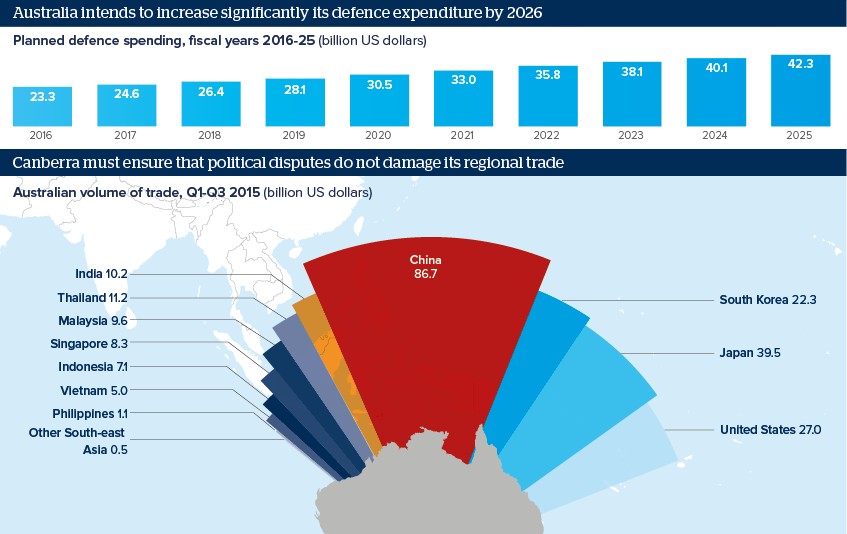Australia defence boost may put China ties on the line
Long-standing trade ties in the Asia-Pacific are increasingly at risk from diplomatic tensions

Source: Australian Department of Defence, IMF, Bloomberg, Oxford Analytica
Outlook
Prime Minister Malcolm Turnbull's government released last week the 2016 Defence White Paper, which calls for an 81% increase in military spending over the next decade. The Paper cites multiple regional security challenges, notably territorial disputes in the East and South China Seas, political instability in small Pacific island states, North Korea's nuclear ambitions and terrorism.
Australia's procurement of submarines, anti-submarine frigates and maritime surveillance aircraft aims to provide a conventional deterrent to Chinese maritime adventurism and support Washington's calls for a rules-based regional order.
However, if Australia is uncertain of Washington's long-term credibility as a guarantor of regional stability, Canberra will prioritise its security partnerships in the Asia-Pacific region over its traditional trade links with China.
Impacts
- Purchasing submarines from Japan, rather than Germany or France, would help Canberra boost security ties with Tokyo
- Strains over Indonesia's death penalty, spying allegations and Australia's immigration policy will impede defence cooperation with Jakarta
- Joining US 'Freedom of Navigation' patrols would significantly limit Australia's ability to act as a Beijing-Washington interlocutor